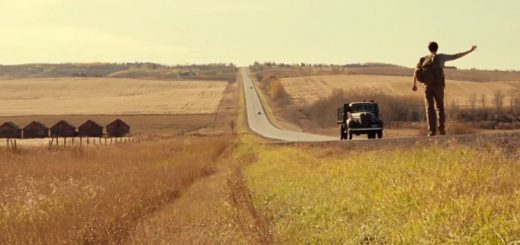At Least We Could Cry

by Rabbi Meir Goldberg
Rav Yitzchok of Vorka was one of the leading Rebbes in Poland some two hundred years ago. A close friend of the Kotzker and the Chidushei Harim of Ger, he was widely known as a Tzaddik and a Baal Mofes.
At that time there was a couple who had an ailing child. The wife, seeing her child’s worsening condition, begged her husband to go to Rav Yitzchok Vorka for a bracha. But the man was no Chassid and did not wish to go. The child’s condition grew progressively worse and the wife pleaded, cajoled and begged her husband to go to the Tzaddik. He finally relented and made the arduous journey to visit the Tzaddik and give him a Kvittel.
The man entered Rav Yitzchok’s room and handed him a Kvittel with the boy’s name on it. Rav Yitzchok took one look at the name and with a concerned face he told the man, “I’m so sorry, but I think you better head home quickly.” The man understood that his son did not have much more time to live in this world, so he rushed to a carriage that was heading home and he jumped on. As the carriage was about to leave, he saw Rav Yitzchok running towards him. Rav Yitzchok got on to the carriage and said to the man, “I’m so sorry.” The man responded, “It’s no problem Rebbe, I understand that it is the Ribonno Shel Olam who runs the world.”
“I’m really so sorry,” Rav Yitzchok said again. “Rebbe,” the man answered, “why do you keep apologizing? It’s not your fault.” Rav Yitzchok explained, “You don’t understand. I’m not apologizing for your son – that is not in my hands. I’m apologizing because when I gave you the bad news, at least I could have cried with you. So now, as we sit here, let’s cry together.”
The story goes that when the man got home, he found that his son had a miraculous recovery, which began during the time that Rav Yitzchok cried with the father. But perhaps there is a deeper lesson…
As the days get shorter and the weather gets colder, there is a sense of discouragement. How much longer till we enjoy a long day of sunshine and warm air blowing across our face? How much snow, sleet and gloominess will we have to endure?
Yet at the darkest point of the year, the diminutive lights of the Menorah radiate like small beacons in the distance from our windowsill.
And just as the Chashmonaim turned the despair of Yavan to the joy of Chanukah, we hope for the same today.
Perhaps this is true on a national level as well.
This interminable golus seems like it will never end, yet we still keep waiting for the day of our redemption. In the meantime, we settle in, build our homes, live our lives and sometimes forget where we are. A Jew is only truly home in Eretz Yisroel and as wonderful as the Medina Shel Chessed that this country really is, we can never forget where we ultimately belong. Perhaps the recent spate of anti Semitism might serve as a reminder.
Each one of us has a good reason why it may not be the right time to go to Eretz Yisroel. For those of us who have children growing up, it is a big risk to pull them out of their community and away from their friends and throw them into Israeli society and chinuch system. Others must stay here because of their obligation to teach Torah to our fellow Jews, wherever they may be. Some may not be able to make the move because they may have no real plan for Parnassa in Eretz Yisroel. Still others may not be able to live without the support system of friends and family.
Whatever valid reasons we may have to stay, we must aspire to go to our true home. At least we could hope. At least we could cry.
Rabbi Meir Goldberg is the director of the Meor Rutgers Jewish Xperience.



Most Orthodox Jews don’t want to move to Israel. If you want to promote moving to Israel, TEACH HEBREW. People will almost never be able to have a parnossa plan if they don’t speak the language.
At least YEARN & Yearn for the day that we can all be in the holy land of Israel.